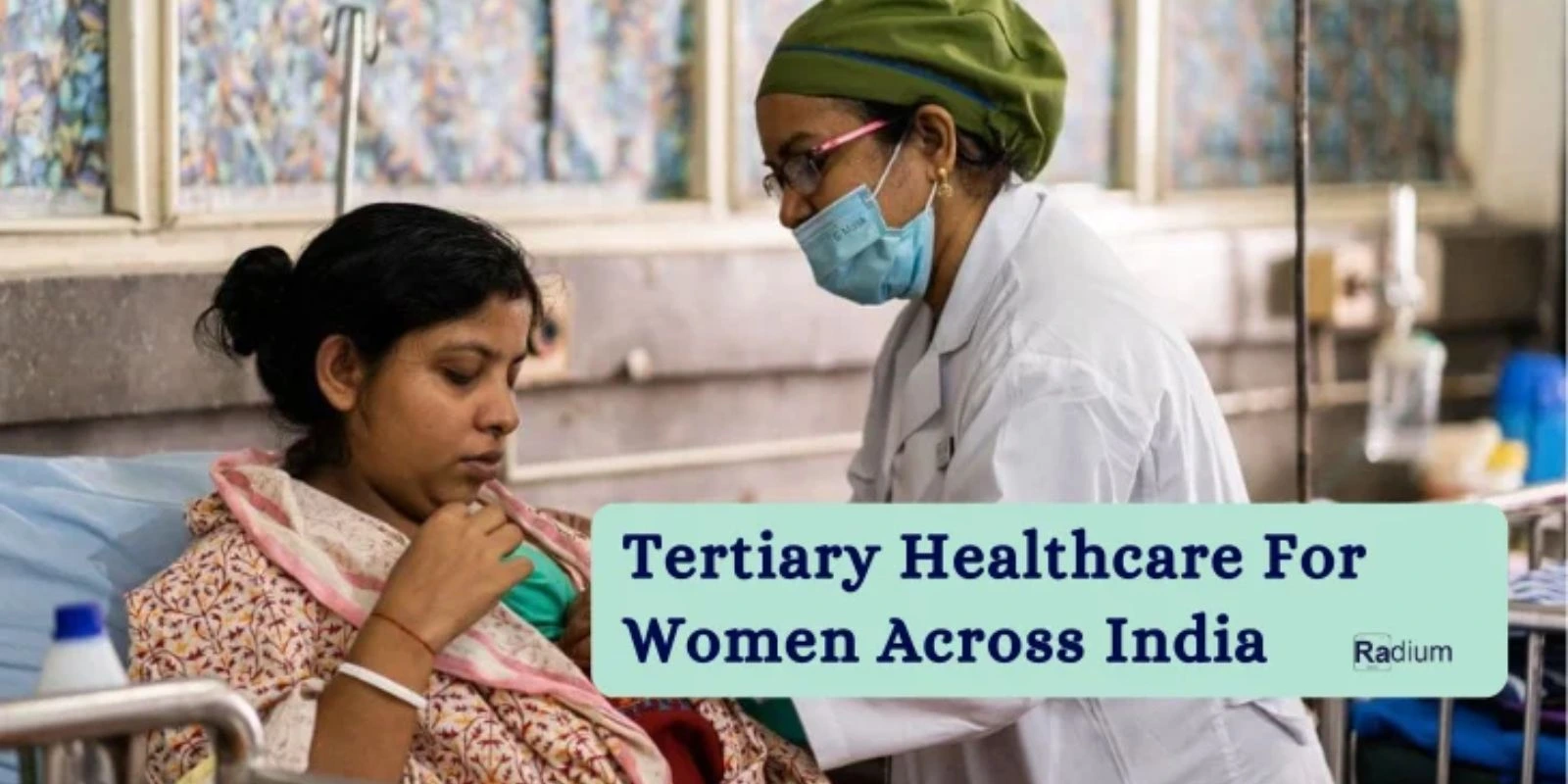
Realizing The Potential: Preserving Women’s Tertiary Healthcare
No matter what gender they are, everyone has the inalienable right to superior medical care. Uneven healthcare outcomes result from the neglect of women’s health needs. India needs to consider better healthcare services if it is to guarantee women’s welfare and help them unleash their full potential. The aim of this blog is to provide the significance of prioritising women’s access to modern healthcare services throughout India and to offer doable steps toward success in this objective.
The Importance of Postsecondary Healthcare for Women
We are highlighting a specialised medical care, known as tertiary healthcare, that is critical for women. It is so, due to the following reasons:
Management of Women-Specific Health Issues: Managing Health Issues Specific to Women: Women have specific health issues throughout their lives, for instance, reproductive health issues, osteoporosis, breast and cervical cancer, menopausal symptoms, and many more. In some cases, tertiary care becomes imperative for proper diagnosis, treatment, and management.
Reducing Morbidity and Death Rates among Mothers: In India, numbers of maternal death and morbidity are very high.By making sure that patients have access to skilled obstetric care, emergency services, and professional interventions, consideration tertiary health care lowers the likelihood of problems during childbirth and improves the health of mothers.
The negative impacts that gender-based violence—Tertiary care sites must address the mental and physical morbidity associated with gender-based violence, including female genital mutilation, domestic abuse, and sexual assault. Tertiary sites shall offer a total care package that includes medical care, therapy, and rehabilitation services.
Encouragement of Women’s Empowerment: Access to extreme levels of quality postsecondary healthcare empowers women by arming them with the education they need to make and take decisions about their health and well-being. It is easier for women to seek education, enter employment, and participate in social and economic activities when they take care of their health, all of which support general social and economic advancement.s to high-quality postsecondary healthcare empowers them. Women who are in charge of their health are better able to pursue education, join the workforce, and engage in social and economic activities, all of which enhance overall social and economic growth.
Ways to Centralized Tertiary Healthcare for Women
To consider tertiary healthcare for women across India, the following steps can be taken:
1.Increased Spending on Healthcare Facilities Investment
More funds should be put into the health infrastructures, in particular rural areas, so that all citizens can have equal benefits of tertiary treatment. This further involved upgrading existing structures, more hospitals dedicated to women’s treatment, and also offering all the medical equipment or other technology.
2. Enhance Medical Education and Training
Providing medical education and training programs which helps in women’s health. This includes incorporating gender-sensitive curricula, giving professional training for healthcare experts in women’s health issues, and promoting research in women’s health to navigate evidence-based care.
3. Upgrade Access to skilled Healthcare Sources
Making surety about a sufficient supply of medical experts, such as gynecologists, oncologists, obstetricians, and mental health specialists, is imperative. To recruit and retain healthcare personnel in remote areas, it’s harder to put in place initiatives that provide incentives including professional development offers, job postings for rural areas, and scholarships.
4. Implement Exclusive Health Insurance Schemes
The cost of tertiary healthcare can be lessened with comprehensive health insurance plans tailored specifically for women. All women, regardless of their financial situation, should be able to access and afford a wide range of women-specific health treatments and procedures through these programs.
5. Dissemination Awareness and Education
Raising general knowledge of women’s health concerns and the need for postsecondary health care is crucial. Campaigns for education and community outreach may be extremely effective in dispelling misconceptions, educating the public, and motivating women to seek early and appropriate medical attention.
Conclusion
Advanced health care for women in India is required for their healthy and caliberful lives. Such attention to the health-related matters of women, by tackling and addressing them, would help in reducing deaths due to maternity and eradicate violence against women. Additionally, women’s empowerment will be encouraged, and therefore, specialized health care facilities for women will be provided. To achieve this objective, we will have to invest in health-care infrastructure, medical education, access to skilled providers, thorough insurance plans, and create awareness. Let’s work together toward a centralization of women’s health and to create a healthier, fairer future for all.
Frequently Asked Questions
Que: What is the difference between primary and secondary healthcare tertiary?
Ans. Primary care services are provided by a general physician or community health centers. While Secondary is provided by specialists and hospitals.
Que: How can tertiary healthcare benefit women?
Ans. Tertiary care deals with gender, specific issues of women, decrease the case of maternal mortality, morbidity. It fights against gender-based violence. Tertiary care will involve women in empowerment processes.
Que: Are there any government schemes to prioritize women’s healthcare?
Ans: Yes, the Government has presented several schemes, (the Pradhan Mantri Surakshit Matritva Abhiyan) to seek better health for every woman, mostly in pregnancy.
Que: How can women empower themselves in seeking tertiary healthcare?
Ans: Women can empower themselves by being advised about finding information, being careful about health, having good health-care services, and campaigning for their rights to get tertiary health care.